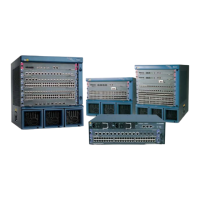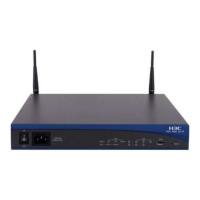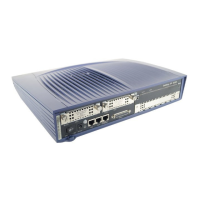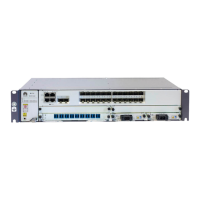network 30.1.1.0 0.0.0.255
network 120.1.1.0 0.0.0.255
#
return
l Configuration file of Switch
#
sysname Switch
#
vlan batch 20 30
#
interface Vlanif20
ip address 20.1.1.2 255.255.255.0
#
interface Vlanif30
ip address 30.1.1.1 255.255.255.0
#
interface GigabitEthernet1/0/0
port hybrid pvid vlan 20
port hybrid untagged vlan 20
#
interface GigabitEthernet2/0/0
port hybrid pvid vlan 30
port hybrid untagged vlan 30
#
ospf 1
area 0.0.0.0
network 20.1.1.0 0.0.0.255
network 30.1.1.0 0.0.0.255
#
return
3.17.11 Example for Configuring the Multi-VPN-Instance CE
Networking Requirements
As shown in Figure 3-13, the networking requirements are as follows:
l CE1, CE2, CE3 and CE4 are customer edge devices. CE1 and CE2 belong to a LAN, and
CE3 and CE4 belong to another LAN.
l PE1 and PE2 are edge devices of the backbone network.
l The MCE is a multi-VPN-instance CE located on the user network.
l CE1 and CE3 belong to vpna; CE2 and CE4 belong to vpnb.
l vpna and vpnb use different VPN targets.
It is required that users on the same VPN can access each other, but users on different VPNs
cannot access each other. In this way, services of different VPNs on the LAN are separated from
each other.
Quidway S7700 Smart Routing Switch
Configuration Guide - VPN 3 BGP MPLS IP VPN Configuration
Issue 01 (2011-07-15) Huawei Proprietary and Confidential
Copyright © Huawei Technologies Co., Ltd.
257
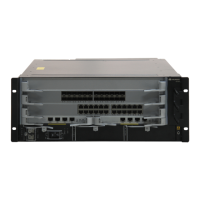
